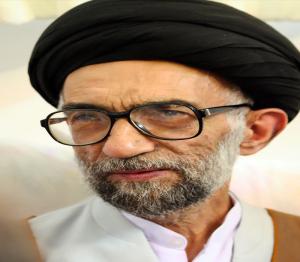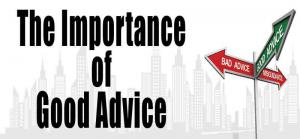Family and Society
Islamic Conditions for Marriage
- Published at
-
- Author:
- Hojjat al-Islam Shaykh Husain Ansariyan
 Marry those among you who are single, or the virtuous ones among your slaves, male or female. [Holy Quran: Nur 24:32]
Marry those among you who are single, or the virtuous ones among your slaves, male or female. [Holy Quran: Nur 24:32]
Islam’s Original Plans for Marriage
- Published at
-
- Author:
- Shaikh Husain Ansariyan
 And those who pray, "Our Lord! Grant unto us wives and offspring who will be the comfort of our eyes, and give us (the grace) to lead the righteous." [Holy Quran: Furqan 25:74]
And those who pray, "Our Lord! Grant unto us wives and offspring who will be the comfort of our eyes, and give us (the grace) to lead the righteous." [Holy Quran: Furqan 25:74]
Marriage Issues
- Published at
-
- Author:
- Ayatullah al-Uzma Hussain Madhahiri
 Today we shall discuss about the reasons for people opting for polygamy. This discussion is neither on jurisprudence nor on the cultural aspect of human life. It pertains only to the morality of polygamy.
Today we shall discuss about the reasons for people opting for polygamy. This discussion is neither on jurisprudence nor on the cultural aspect of human life. It pertains only to the morality of polygamy.
Society and Tradition
- Published at
-
- Author:
- Martyr Murtuda Mutahhari
 If society has real existence, it should naturally possess laws peculiar to it. If we accept the first theory about the nature of society (which we have already discussed) and reject the existence of society as a real entity, naturally we have to admit that society lacks laws which may govern it.
If society has real existence, it should naturally possess laws peculiar to it. If we accept the first theory about the nature of society (which we have already discussed) and reject the existence of society as a real entity, naturally we have to admit that society lacks laws which may govern it.
How to Overcome Various Marriage Problems
- Published at
-
- Author:
- Abdul Adheem al-Muhtadi al-Bahrani
 What is the cure for sexual impotence, and what are its causes?
Question: What is the cure for sexual impotence, and what are its causes? My wife has begun thinking of divorce because I am frigid and impotent.
The answer: There are many causes behind sexual impotence:
What is the cure for sexual impotence, and what are its causes?
Question: What is the cure for sexual impotence, and what are its causes? My wife has begun thinking of divorce because I am frigid and impotent.
The answer: There are many causes behind sexual impotence:
Islam and the Family
- Published at
-
- Author:
- Sayyid Mujtaba Musavi Lari
 While the warp of society is the individual person and the woof is social order, the unit of the design is the family. Families in which mutual understanding, sincerity and tenderness reign, form details of a harmonious pattern.
While the warp of society is the individual person and the woof is social order, the unit of the design is the family. Families in which mutual understanding, sincerity and tenderness reign, form details of a harmonious pattern.
Islamic Ethics in the Family Structure
- Published at
-
- Author:
- Hojjat al-Islam Husain Ansariyan
 The Prophet (Pbuh) said: I recommend you to have good morality, since verily this will take you to heaven, and you should not be foul tempered since that will undoubtedly take you to Hell. [Vasa'il, v.16, p.29, Al-i-Bayt Press]
The Prophet (Pbuh) said: I recommend you to have good morality, since verily this will take you to heaven, and you should not be foul tempered since that will undoubtedly take you to Hell. [Vasa'il, v.16, p.29, Al-i-Bayt Press]
The Relationship Between Individual and Society
- Published at
-
- Author:
- Martyr Murtuda Mutahhari
 The outlook of a school of thought regarding society and history and its specific approach to them, plays a decisive role in its ideology. From this point of view, it is essential, in the context of Islamic world outlook, to throw light on the Islamic approach to society and history.
The outlook of a school of thought regarding society and history and its specific approach to them, plays a decisive role in its ideology. From this point of view, it is essential, in the context of Islamic world outlook, to throw light on the Islamic approach to society and history.
Compilation and Writing on Women's Affairs and Issues in the Realm of Islamic Culture
- Published at
-
- Author:
- Mahdi Mahrizi
 Compilation and writing on women's affairs and issues, in the realm of Islamic culture, goes back to ancient times and to the 3rd and 4th centuries. All the scientific efforts and searches can be divided into two totally different periods.
Compilation and writing on women's affairs and issues, in the realm of Islamic culture, goes back to ancient times and to the 3rd and 4th centuries. All the scientific efforts and searches can be divided into two totally different periods.
The Role of Religion in the Society and in Our Families
- Published at
-
- Author:
- Sousan Sattar boroujeni and Saeedeh Shafiee Nahrkhalaji
- Source:
- www.imamreza.net
 God says about the Qur’an.. “It (Qur'an) is a guide and a healing to those who believe" (S.41: V. 44). Our religion, Islam, plays a significant role in satisfying our physical as well as spiritual needs. Islam teaches us, a code of behavior, and conservation of social values and gives us a meaning for our existence. It helps in toleration and developing adaptive capacities for stressful events of life. It gives us a sense of self-respect and teaches us about the virtues of family life and a cohesive society with a sense of brotherhood. In this study the role of religion in the society as well as in the family has been reviewed.
God says about the Qur’an.. “It (Qur'an) is a guide and a healing to those who believe" (S.41: V. 44). Our religion, Islam, plays a significant role in satisfying our physical as well as spiritual needs. Islam teaches us, a code of behavior, and conservation of social values and gives us a meaning for our existence. It helps in toleration and developing adaptive capacities for stressful events of life. It gives us a sense of self-respect and teaches us about the virtues of family life and a cohesive society with a sense of brotherhood. In this study the role of religion in the society as well as in the family has been reviewed.
Islam and Social Responsibilities: The Way of the Prophet (S)
- Published at
-
- Author:
- Ali Jawad is a member of the Ahlul Bayt Islamic Mission (AIM)
- Source:
- http://www.ic-el.com
 Men of faith define the present times in precarious terms. Beneath the glamour of technological progress, any deeper assessment of the general human condition presents a far more sombre reality. 'What is to blame for our current perils?' one may ask. In essence, we are living the after-effects of the key intellectual battles of the twentieth century that pitched individual against society.
Men of faith define the present times in precarious terms. Beneath the glamour of technological progress, any deeper assessment of the general human condition presents a far more sombre reality. 'What is to blame for our current perils?' one may ask. In essence, we are living the after-effects of the key intellectual battles of the twentieth century that pitched individual against society.
The Importance of Seizing the Opportunities of life (Part 1)
- Published at
-
- Author:
- Sayyid Mahdi as-Sadr
- Source:
- maaref-foundation.com
 If man compares all desires and pleasures of this life to his age, he will find that the latter is more precious. He will also discover that nothing at all can come to the value of his age, since the pleasures of this world can be regained, while the lifetime cannot be elongated or extended to a single moment:
If man compares all desires and pleasures of this life to his age, he will find that the latter is more precious. He will also discover that nothing at all can come to the value of his age, since the pleasures of this world can be regained, while the lifetime cannot be elongated or extended to a single moment:
The Importance of Seizing the Opportunities of life (Part 2)
- Published at
-
- Author:
- Sayyid Mahdi as-Sadr
- Source:
- maaref-foundation.com
 Imam Sadjad (A.S) said: “How poor son of Adam is! Every day, he is inflicted with three misfortunes. Nevertheless, he does learn lessons from any. Had he learnt a lesson, all the misfortunes of this worldly life would have been easy in his sight. The first misfortune is that the day which comes upon him decreases his age. If a decrease occurs to his wealth, he will become so depressed, while he can cover the decrease of wealth,
Imam Sadjad (A.S) said: “How poor son of Adam is! Every day, he is inflicted with three misfortunes. Nevertheless, he does learn lessons from any. Had he learnt a lesson, all the misfortunes of this worldly life would have been easy in his sight. The first misfortune is that the day which comes upon him decreases his age. If a decrease occurs to his wealth, he will become so depressed, while he can cover the decrease of wealth,
The Threat of Nihilism: New Educational Opportunities?
- Published at
-
- Author:
- Paul Smeyers
- Source:
- http://web.archive.org
 If the educator is characterized by a willingness to stand for something and simultaneously willing to care for someone, then the philosophy of authenticity should help the educator out of the problems that the Enlightenment project and some of its critics have created. While our integrative authenticity should rescue us from despair, it should also correct the possible immobilism occasioned by the interpretation of some postmodernist authors.
If the educator is characterized by a willingness to stand for something and simultaneously willing to care for someone, then the philosophy of authenticity should help the educator out of the problems that the Enlightenment project and some of its critics have created. While our integrative authenticity should rescue us from despair, it should also correct the possible immobilism occasioned by the interpretation of some postmodernist authors.
Principles for a Pedagogy in the Technological Era
- Published at
-
- Author:
- Eduardo Abranches de Soveral; Universidade do Porto, Portugal
- Source:
- http://web.archive.org
 ABSTRACT
I argue that humanity is initiating a new historical era: the Technological Era. While this mutation opens to man extraordinary possibilities of spiritual and material progress, it is irreversible and threatens to destroy him. The eminent danger can be relieved only by adequately preparing the younger generation. In what follows, the principles which guide this preparation are enunciated and justified. The nuclear importance which should be given to moral education is emphasized, and the cultural and sociological obstacles opposed to it are analyzed. Finally, the means to overcome these obstacles are indicated.
ABSTRACT
I argue that humanity is initiating a new historical era: the Technological Era. While this mutation opens to man extraordinary possibilities of spiritual and material progress, it is irreversible and threatens to destroy him. The eminent danger can be relieved only by adequately preparing the younger generation. In what follows, the principles which guide this preparation are enunciated and justified. The nuclear importance which should be given to moral education is emphasized, and the cultural and sociological obstacles opposed to it are analyzed. Finally, the means to overcome these obstacles are indicated.
Corporate Sponsored Education: The Limits Of Social Responsibility
- Published at
-
- Author:
- G. John M. Abbarno
- Source:
- http://web.archive.org
 The business sector increasingly subsidizes financially challenged institutions. Representative examples would include health care, major sports arenas, and penal facilities. Among the recent beneficiaries of corporate largesse are schools. Such assistance blurs social roles and raises serious moral concerns, especially those of moral agency. Education, more so than other social institutions, determines the kind of citizen and moral character a person can become.
The business sector increasingly subsidizes financially challenged institutions. Representative examples would include health care, major sports arenas, and penal facilities. Among the recent beneficiaries of corporate largesse are schools. Such assistance blurs social roles and raises serious moral concerns, especially those of moral agency. Education, more so than other social institutions, determines the kind of citizen and moral character a person can become.
THE IMPORTANCE OF TIME IN ISLAM
- Published at
-
- Source:
- http://www.ezsoftech.com/akram/time.asp
 There are among those who believe in the popular saying as "Time is Gold." Time in Islam is more than Gold or any precious material thing in this world. Of all religions, only Islam guides mankind not only to the importance of time but also how to value it. Allah the Almighty and His Messenger, Prophet Mohammad (PBUH), very clearly tell us the value of time, why we must not waste it and how we can make use of our time wisely to increase our Eeman (Faith) and thus attain success, especially eternal success in the life hereafter.
There are among those who believe in the popular saying as "Time is Gold." Time in Islam is more than Gold or any precious material thing in this world. Of all religions, only Islam guides mankind not only to the importance of time but also how to value it. Allah the Almighty and His Messenger, Prophet Mohammad (PBUH), very clearly tell us the value of time, why we must not waste it and how we can make use of our time wisely to increase our Eeman (Faith) and thus attain success, especially eternal success in the life hereafter.
Willing and Knowing
- Published at
-
- Author:
- Riku Juti
- Source:
- http://web.archive.org
 This paper discusses W. K. Clifford's classic paper, "The Ethics of Belief," and the significance of his use of the locution "knowingly and willingly" in the context of morally irresponsible ignorance. It is argued that this locution can point to a very subtle and important distinction in the premisses of ethically responsible belief formation. An analysis of willful ignorance is then given. It is argued that, strictly speaking, there is no such thing as willful ignorance:
This paper discusses W. K. Clifford's classic paper, "The Ethics of Belief," and the significance of his use of the locution "knowingly and willingly" in the context of morally irresponsible ignorance. It is argued that this locution can point to a very subtle and important distinction in the premisses of ethically responsible belief formation. An analysis of willful ignorance is then given. It is argued that, strictly speaking, there is no such thing as willful ignorance:



